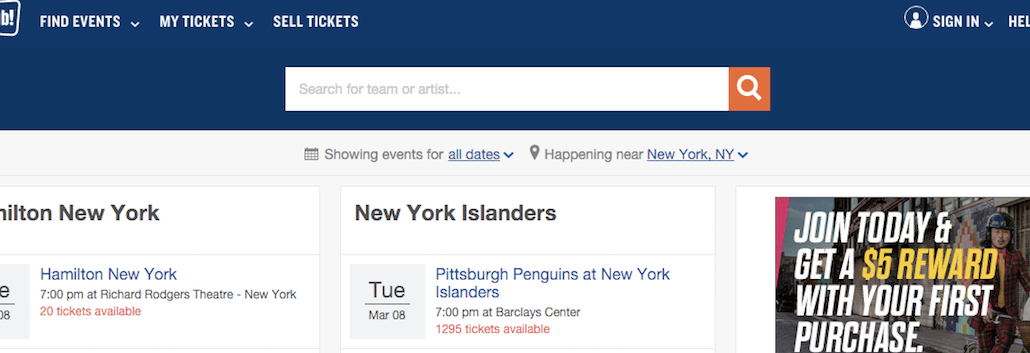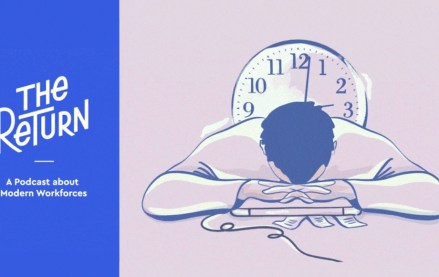Inside StubHub’s programmatic strategy: ‘We are in the minority’

Although WPP CEO Martin Sorrell and other high-profile ad executives believe that in-house programmatic buying is a short-lived trend, StubHub is not going to give up on the hands-on approach anytime soon.
This week the company’s head of paid media Lee Engel told Digiday that bringing programmatic in-house has enabled the ticket marketplace to utilize and protect its proprietary data, save agency fees as well as capture business opportunities in real time.
“We sell one ticket every second so everything is moving fast here,” explained Engel. “If we ask an agency to handle programmatic for us, when we call it and wait on adjustments, we’ve already missed a business opportunity.”
Engel joined StubHub in 2012 to help the brand build up its own programmatic technology stack. To date an in-house programmatic method has proved to be efficient for StubHub. For example,when an event is posted on its website, a relevant display ad will be served simultaneously. And programmatic enables StubHub to show recommended events in a display ad based on the last event a person viewed on the site.
“This is a new retargeting capability. Over the last four years we have also used many different solutions and have continuously refined our digital marketing technology stack to optimize performance and improve business results,” Engel added.
Of course, not every brand should manage programmatic buying on its own. It makes sense for StubHub because the company’s e-commerce nature offers enough data and at the same time, requires the online marketplace to be “incredibly nimble” and make business decisions very quickly.
If other brands, especially non-e-commerce ones, don’t collaborate with agencies on programmatic, they are likely to run into challenges retaining talent and may invest in the technology without any positive return.
“We are probably in the minority. For some brands in-house makes sense, but for the majority it doesn’t,” said Engel. “It’s not easy to set up operations in the first place because you need expertise and hire experienced staff.”
For now, Engel’s team only works with one demand-side platform DoubleClick Bid Manager and one data management platform DoubleClick Audience Center. But it’s looking to test more programmatic tools.
In spite of all the challenges, Engel doesn’t plan to outsource programmatic to agencies anytime soon. Instead, he is always looking to hire talented programmatic experts with a passion for data, technology and automation as well as sports, concerts and entertainment.
“I don’t think we are going to work with agencies on programmatic in the near future but I never say never,” he said. “It’s a balance. Agencies have enormous expertise we want to tap into. We work with agencies on a bunch of different things.”
More in Marketing

With the rise of the chief AI officer, it’s time to examine ‘czar’ culture
Even if it’s a familiar pattern — hot new thing, new C-Suite exec to tackle said thing, a few years go by and that C-Suite position no longer exists as everyone is now doing said thing (or it was a fad that has since faded away) — does it make sense for businesses to continue to appoint new czars with every new trend?

Why Cava’s bid for brand awareness means prioritizing streaming ads
Fast-casual restaurant chain Cava has been in growth mode over the past year and is leaning into streaming ads in an effort to boost brand awareness.

A history of middle manager stress: The Return podcast, season 3, episode 1
In episode one, McKinsey partner Emily Field tells us more about why middle management is critically important to the workforce.





